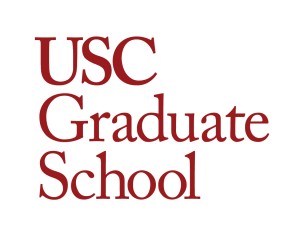The USC Annenberg Graduate Fellowship Program is seeking abstracts for the fourth Annual Research and Creative Project Symposium on April 11, 2012. Abstracts should describe a creative project or original work that investigates questions in communication and digital media research.
- Explore Locally, Excel Digitally: A participatory learning-oriented after-school program
for enriching citizenship on- and offline = ACCEPTED!
The Los Angeles Unified School District (LAUSD) is simultaneously committed to boosting students’ digital proficiency and challenged by these learners’ academic disengagement. In response, Participatory Learning and You! (PLAY!) designed a theoretical framework and methodology for introducing a pedagogy of participatory culture, and applied it in a pilot after-school program at LAUSD’s Robert F. Kennedy Community Schools. Dubbed “Explore Locally, Excel Digitally” (ELED), this program invited high school students to hone their digital citizenship. Ethnographic fieldnotes, video recordings, and student reflection from ELED’s 15 weeks illustrate this program’s culture of participatory learning, characterized by motivation and engagement, creativity, relevance, co-learning, and ecological learning. ELED also supported participants’ acquisition of digital literacy skills, new media literacies proficiencies, and social and emotional learning competencies. This experience suggests that relationship-building is integral and foundational to establishing citizenship, both online and offline.
- Feeling our way through: Exploring the potential of Dojo, a biofeedback-enhanced video game for emotional regulation training = DENIED
How do we boost students’ test scores, improve school safety, cultivate creativity, and combat the spread of public health challenges such as HIV/AIDS? Complementary research from diverse fields suggests that the key is emotional regulation (Elias, Zins, Weissberg, Frey, Greenberg, Haynes, Kessler, Schwab-Stone, & Shriver, 1997; Clark, Miller, Nagy, Avery, Roth, Liddon, & Mukherjee, 2005; Immordino-Yang & Damasio, 2007). But despite this considerable body of evidence, emotional regulation is the least taught competency of all of the social and emotional learning (SEL) learning skills (Collaborative for Academic Social and Emotional Learning, 2003). Educators’ lack of pedagogy for addressing students’ emotional regulation contributes to its curricular absence; difficulties around unambiguous perception both of one’s own emotional state as well as that of others also embattles the development, uptake, and successful realization of such curricula. GameDesk’s state-of-the-art emotional regulation video game Dojo addresses this visibility issue via biofeedback. Fingertip sensors record skin conductance and heart rate as players negotiate game-related quests; in addition to displaying these levels on-screen, the game’s difficulty increases when players’ stress increases, thus compelling players to consciously apply emotional regulation mechanisms in order to prevail. The pedagogy issue, however, remains largely unaddressed. This presentation will offer a compendium of guiding principles and best practices to inform the development of a Dojo-related emotional regulation curriculum for students in grades 6-9. It will review results from similar SEL curricula, identify successful strategies for both teaching and coping, recommend analog assessment measures, articulate past and possible future relationships between technology and behavior change, and spotlight key areas for continued research, development, and intervention. Finally, attendees will have the opportunity to slip on a set of sensors and pilot Dojo themselves.
- Laughter for a Change: Realizing participatory learning via play and negotiation = DENIED
Play and negotiation are crucial tools as contemporary education stands at a crossroads: emphases on standardized testing and digital proficiency call into question what to teach and how to teach it; changes in social relationships and communication norms introduce promises and perils for students seeking support and self-expression; and anticipation of future shifts for both technology and job opportunities (Johnson, Smith, Willis, Levine, & Haywood, 2011; Thomas & Seely Brown, 2011) also challenge established theory and practice vis-à-vis education. In order to address this, educators should engage learners in play and negotiation. “Play” and “negotiation,” respectively defined as “the ability to experiment with one’s surroundings as a form of problem-solving” and “the ability to travel across diverse communities, discerning and respecting multiple perspectives, and grasping and following alternative norms” (Jenkins, Purushotma, Clinton, Weigel, & Robison, 2006, p. 4), provide opportunities for youthful collaborators to “…increase developmental assets such as competence, self-efficacy and sense of control by developing an awareness of and engaging with their environment” (Wong & Zimmerman, 2005, p. 105). A play- and negotiation-rich intervention with Los Angeles high school students functions as a case study. Implemented in the fall of 2011, non-profit organization Laughter for a Change established a weekly, after-school improvisational theater workshop for students at the Robert F. Kennedy Community Schools. Ethnographic fieldnotes, documentary photography and videography, as well as students’ end-of-semester reflections reveal participants’ learning outcomes that range from stronger performance skills to greater self-confidence to richer interpersonal relationships to increased willingness to take risks. Additionally, analysis of students’ process confirms their motivation and engagement, creativity, relevance-seeking, co-learning, and ecological learning, collectively suggesting that Laughter for a Change established a culture in which participatory learning flourished.



